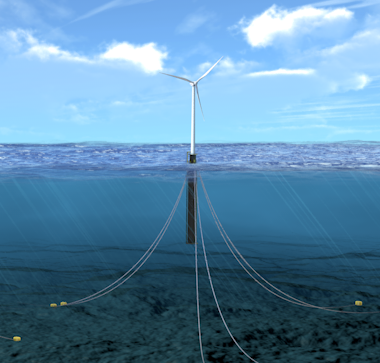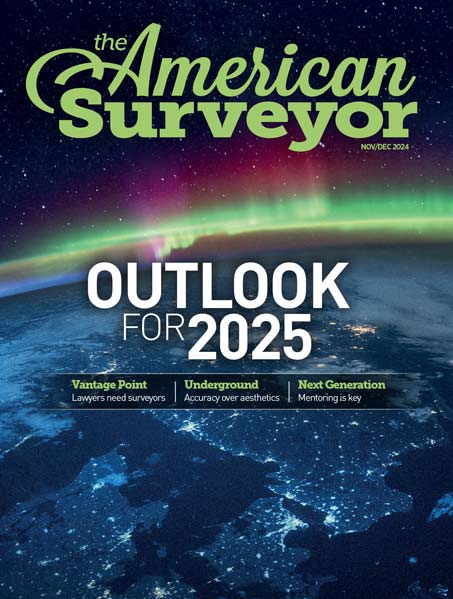
Fugro’s new monitoring solution is installed on floating wind turbines to accurately determine the mooring system’s service life.
Glasgow, Scotland, 14 June 2021 – A Fugro-led consortium that includes AS Mosley and the University of Strathclyde has designed a mooring line fatigue tracker that safely and cost-effectively monitors offshore floating wind turbines, thanks to innovation funding from the Scottish Government. The consortium won the funding to develop the tracker, which fuses the motion and position measurements of floating hulls with a simulation model to monitor fatigue, in March 2020 through the Floating Offshore Wind Technology Acceleration Competition (FLW TAC), which was run by the Carbon Trust’s Floating Wind Joint Industry Project. Having already demonstrated the technology in a relevant environment, Fugro and partners are now identifying opportunities to work with floating wind developers on pre-commercial projects to trial the solution offshore.
As a future part of the UK’s green energy generation portfolio, floating offshore wind farms will need to operate reliably and minimise in-person inspections to reduce HSSE risk exposure and remain cost-effective. Drawing on their existing satellite positioning, structural and metocean monitoring systems, Fugro worked with AS Mosley and the University of Strathclyde to combine a physics-based simulation model with state-of-the-art fatigue analysis to develop a cost-effective and streamlined methodology. Instead of the current conventional 5-year subsea inspection regime, mooring line fatigue will be tracked so that inspection activities – which require vessels and remotely operated vehicles (ROVs) – are only carried out when necessary. Another benefit is that the monitoring is continuous and can be used to detect any problems or failure scenarios, such as anchor drag or trawler snagging, as they happen for quick resolution.
Hannah Evans, Manager at the Carbon Trust, said: “We are really pleased to see the progress Fugro, AS Mosley and the University of Strathclyde have made in developing their mooring line fatigue tracker over the past 12 months. This project has demonstrated the value of collaboration between industry and academia in Scotland to deliver innovative solutions, and addresses challenges faced by the floating wind industry to monitor mooring lines safely and cost-effectively.”
Stuart Killbourn, Fugro’s Structural Monitoring Project Manager, said: “Working with AS Mosley and the University of Strathclyde to repurpose methods and expertise from the oil and gas industry for offshore renewable energy has been incredibly exciting. Over the coming decade, efficient and reliable remote monitoring systems will be vital for the deployment of floating wind farms, which in turn are so important for meeting net-zero carbon targets for a safe and liveable world.”
About Fugro
Fugro is the world’s leading Geo-data specialist, collecting and analysing comprehensive information about the Earth and the structures built upon it. Adopting an integrated approach that incorporates acquisition and analysis of Geo-data and related advice, Fugro provides solutions. With expertise in site characterisation and asset integrity, clients are supported in the safe, sustainable and efficient design, construction and operation of their assets throughout the full life cycle. Employing approximately 9000 talented people in 61 countries, Fugro serves clients around the globe, predominantly in the energy and infrastructure industries, both offshore and onshore. In 2020, revenue amounted to EUR 1.4 billion. Fugro is listed on Euronext Amsterdam.
About the Floating Wind Technology Acceleration Competition (FLW TAC)
The Floating Wind Technology Acceleration Competition (FLW TAC) was designed and run by the Carbon Trust’s Floating Wind Joint Industry Project, a world-leading collaborative floating wind research and development initiative between the Carbon Trust and 15 leading international offshore wind developers. The competition, which received funding from the Scottish Government, was designed to find innovations with the potential to address four key industry challenge areas that need to be overcome to commercialise floating wind: monitoring and inspection, mooring systems, heavy lift maintenance and tow-to-port maintenance.
